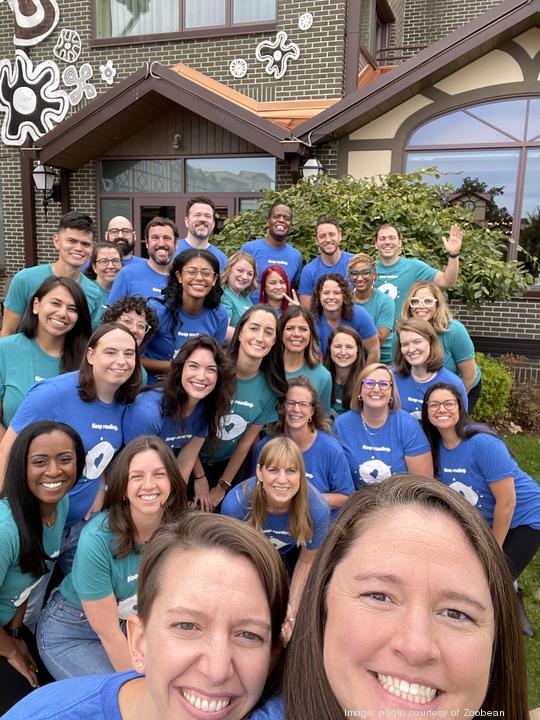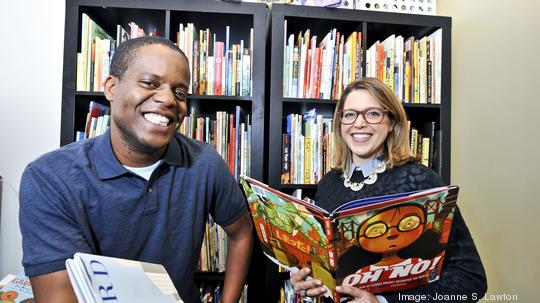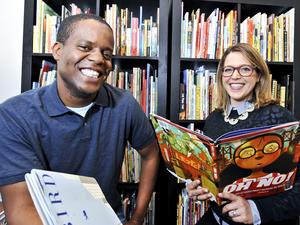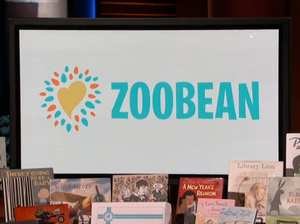
D.C. ed-tech startup Zoobean had been making steady waves since its appearance on ABC’S “Shark Tank” in 2014 and $250,000 investment by Mark Cuban. But then the pandemic hit, and suddenly, the company saw five years worth of growth in a matter of five months.
Now, its founders say, the challenge is how to maintain that upward trajectory as the field gets ever more competitive and education returns to more in-person interactions — a process the company is in the process of figuring out now.
"Our company right now is in its crucial phase right from $5 million to $10 million and what comes with that is a shift in our vertical focus," CEO and co-founder Felix Brandon Lloyd said. Essentially, its initial software was geared toward libraries, but the pandemic saw schools hunger for the product, opening a new, larger market opportunity that the business plans to capitalize more going forward.
Founded in 2014 by Jordan Lloyd Bookey and Felix Brandon Lloyd, Zoobean Inc. sells its flagship software platform, Beanstack, which helps educators and librarians virtually operate reading challenges and track students' literary progress. Beanstack is analogous to the Fitbit or Duolingo of reading as it gamifies the activity with badges and milestones while allowing clients to track user data and movement.
“There was a phase of the business where I worried about survival, and that would be what I call the startup phase,” said Lloyd. “Now I worry about growth, not survival because we can't just stay where we are. We've got more customers. We've got more competition."
A host of websites, apps and platforms cater to readers, young and old, from Goodreads to StoryGraph and Bookly to Basmo, but Lloyd said Zoobean has been able to target more institutions as clients of late. "We're the only vendor that can go to some school districts and say, 'We also work with your public library,' so I think that's one of the big differentiators," Lloyd said. "A lot of folks that started in the school space and focused there that would be competing for those dollars — they're in the business of getting students to test well, which is very important. I think what is different about us is, we have this unique blend and competence at motivating reading, for reading's sake."
Its sales accelerated during the pandemic, when libraries and schools sought the ability to continue running reading challenges and engaging with students to motivate them to read at home. In May and April of 2020, the company saw more sales and clients in three weeks than it had in almost two years.
That demand has more than doubled Zoobean’s size, which went from roughly 10 to 15 employees in 2019 to 32 employees today, with plans to grow further to 40 people this year in what's become a fully remote workforce. For revenue, it totaled a little more than $1 million before the pandemic. In 2022, its revenue topped $5 million.
But that sudden swelling led to some growing pains, as well. The small company lacked a human resources department, so hiring quickly led to recruits who weren’t always a good fit, Lloyd said. While hiring the right person remains a challenge today, Lloyd said the company isn't ready to build out its own HR function yet — it partners with organizational development firm Outside Angle to do performance reviews and manage its employment processes.

Nowadays, Lloyd said, he's seen a shift in the availability of talent, including an abundance of teachers and educators applying for roles at the company. From February 2020 and May 2022, 300,000 public school teachers and other staff left the profession according to The Wall Street Journal. In Maryland, 9.1% of teachers left the profession in the last academic school year, per the state Department of Education. In D.C., where Lloyd was teacher of the year in 2001, the city saw 26% of teachers opt not to return to their schools in the 2021-2022 school year.
“You can feel the hunger and, in some cases unfortunately, the desperation to just escape,” he said. “We put a job post up and we get flooded with applications from librarians and teachers.”
As the company enters 2023, it’s now looks to recalibrate its growth, especially as it competes with other ed-tech players like library automation software maker Follett or accelerated reader software maker Renaissance for school budget dollars.
“Beanstack, in the new normal — we’re not trying to replace paper reading logs anymore. That was too easy," Lloyd said. "We’re trying to take this way you used to get kids to read more and say, 'That’s not going to work anymore in the modern day.' Let’s employ some new types of gamification tools and accessibility to still arrive at the same result of motivating them to read more.”

